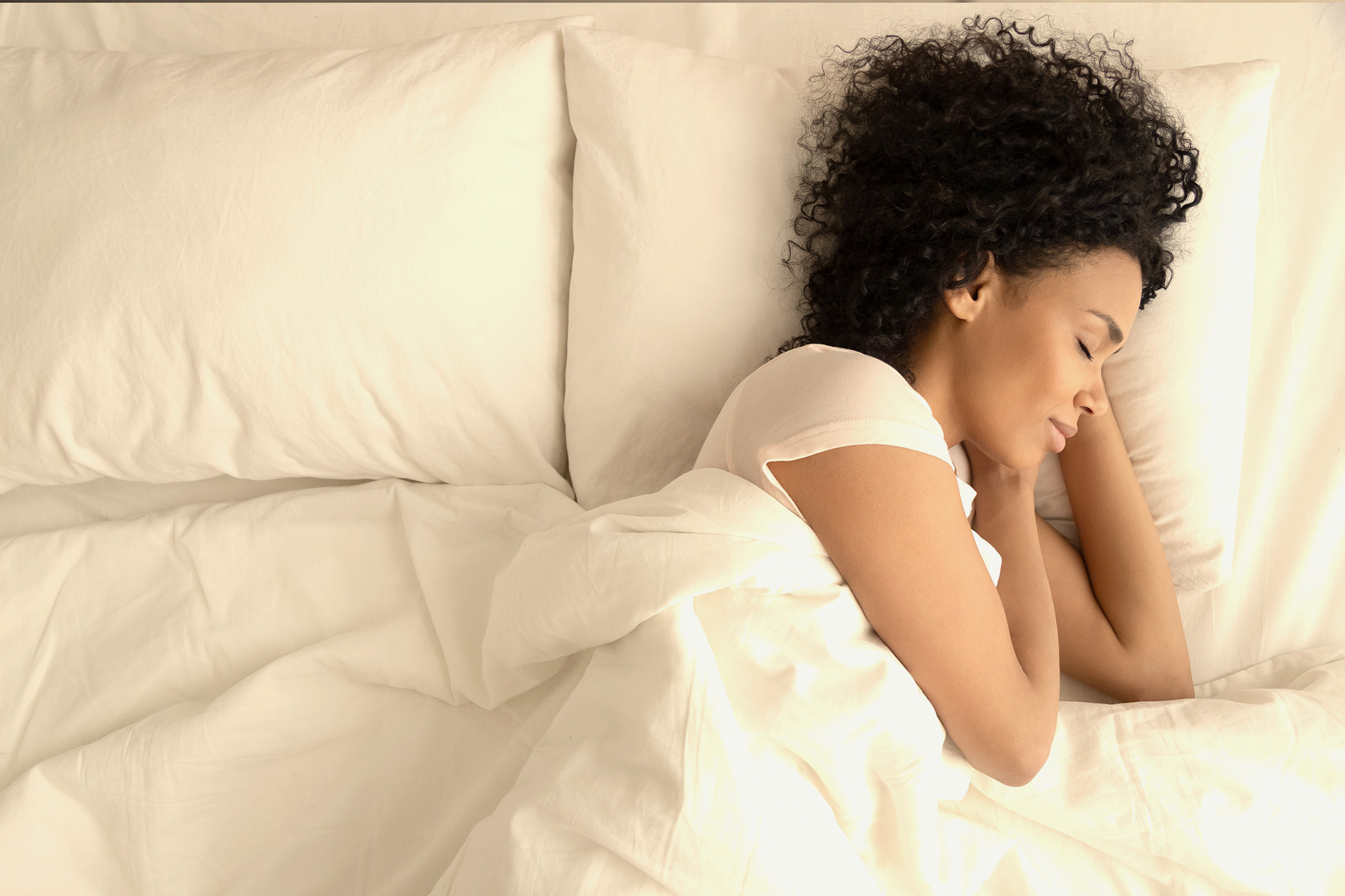On this page
The time you spend in high school and college can be both fun and rewarding. At the same time, these can be some of the busiest years of your life.
Balancing all the demands on your time — a full course load, extracurricular activities, and socializing with friends — can be challenging. And if you also work or have family commitments, it can feel like there just aren’t enough hours in the day.
With so many competing priorities, sacrificing sleep may feel like the only way to get everything done.
Despite the sleepiness you might feel the next day, one late night probably won’t have a major impact on your well-being. But regularly short-changing yourself on quality sleep can have serious implications for school, work, and your physical and mental health.
Alternatively, prioritizing a regular sleep schedule can make these years healthier, less stressful, and more successful long-term.
The sleep you need versus the sleep you get
According to the National Sleep Foundation, high school students (ages 14-17) need about eight to 10 hours of sleep each night. For young adults (ages 18 to 25), the range is need between seven and nine hours.
How do you know how much sleep you need within this range?
According to Dr. Edward Pace-Schott, Harvard Summer School and Harvard Medical School faculty member and sleep expert, you can answer that question simply by observing how much you sleep when you don’t need to get up.
“When you’ve been on vacation for two weeks, how are you sleeping during that second week? How long are you sleeping? If you’re sleeping eight or nine hours when you don’t have any reason to get up, then chances are you need that amount or close to that amount of sleep,” says Pace-Schott.
Most students, however, get far less sleep than the recommended amount.
Seventy to 96 percent of college students get less than eight hours of sleep each week night. And over half of college students sleep less than seven hours per night. The numbers are similar for high school students; 73 percent of high school students get between seven and seven and a half hours of sleep.
Of course, many students attempt to catch up on lost sleep by sleeping late on the weekends. Unfortunately, this pattern is neither healthy nor a true long-term solution to sleep deprivation.
And what about those students who say that they function perfectly well on just a couple hours of sleep?
“There are very few individuals who are so-called short sleepers, people who really don’t need more than six hours of sleep. But, there are a lot more people who claim to be short sleepers than there are real short sleepers,” says Pace-Schott.
Consequences of sleep deprivation
The consequences of sleep deprivation are fairly well established but may still be surprising.
For example, did you know that sleep deprivation can create the same level of cognitive impairment as drinking alcohol?
According to the CDC, staying awake for 18 hours can have the same effect as a blood alcohol content (BAC) of 0.05 percent. Staying awake for 24 hours can equate to a BAC of 0.10 percent (higher than the legal limit of 0.08 percent).
And according to research by AAA, drowsy driving causes an average of 328,000 motor vehicle accidents each year in the US. Drivers who sleep less than five hours per night are more than five times as likely to have a crash as drivers who sleep for seven hours or more.
Other signs of chronic sleep deprivation include:
- Daytime sleepiness and fatigue
- Irritability and short temper
- Mood changes
- Trouble coping with stress
- Difficulty focusing, concentrating, and remembering
- Brain fog
Over the long term, chronic sleep deprivation can have a serious impact on your physical and mental health. Insufficient sleep has been linked, for example, to weight gain and obesity, cardiovascular disease, and type 2 diabetes.
The impact on your mental health can be just as serious. Harvard Medical School has conducted numerous studies, including research by Pace-Schott, demonstrating a link between sleep deprivation and mental health disorders such as anxiety and depression.
Importance of sleep for high school and college students
As difficult as it is to prioritize sleep, the advantages of going to bed early and getting quality sleep every night are very real.
College students who prioritize sleep are likely to see an improvement in their academic performance.
If you are well rested, you will experience less daytime sleepiness and fatigue. You may need less caffeine to stay awake during those long lectures. And you will also find you are more productive, more attentive to detail, and able to concentrate better while studying.
But the connection between sleep and academic performance goes well beyond concentration and attentiveness.
“Sleep is very important for consolidating memories. In any sort of experimental setting, study results show better performance if you learn material and then sleep on it, instead of remaining awake. So there’s lots and lots of evidence now indicating that sleep promotes memory strengthening and memory consolidation,” says Pace-Schott.
There is also a strong connection between sleep quality and stress.
Students who prioritize sleep are better able to cope with the stress that comes with being an active student.
“It’s a vicious circle where the more stressed you get, the less you sleep, and the less you sleep, the more stressed you get. And in the long term, that can lead to serious psychiatric problems,” says Pace-Schott.
In the worst case scenario, the combination of lack of sleep and stress can lead to mental health disorders such as depression, general anxiety disorder, and potentially even post-traumatic stress disorder.
But prioritizing sleep can create a positive feedback loop as well.
Establishing a sleep schedule and adequate sleep duration can improve your ability to cope with stress. Being active and productive will help you get more done throughout the day, which also reduces feelings of stress.
And the less stressed you feel during the day, the better you will sleep at night.
Tips for getting more sleep as a student
The key to getting a good night’s sleep is establishing healthy sleep habits, also known as sleep hygiene.
The first step is deciding to make sleep a priority.
Staying ahead of coursework and avoiding distractions and procrastination while you study is key to avoiding the need for late night study sessions. And prioritizing sleep may mean leaving a party early or choosing your social engagements carefully.
Yet the reward—feeling awake and alert the next morning—will reinforce that positive choice.
The next step is establishing healthy bedtime and daytime patterns to promote good quality sleep.
Pace-Schott offers the following tips on steps you can take to create healthy sleep hygiene:
- Limit caffeine in close proximity to bed time. College students should also avoid alcohol intake, which disrupts quality sleep.
- Avoid electronic screens (phone, laptop, tablet, desktop) within an hour of bedtime.
- Engage in daily physical exercise, but avoid intense exercise within two hours of bedtime.
- Establish a sleep schedule. Be as consistent as possible in your bedtime and rise time, and get exposure to morning sunlight.
- Establish a “wind-down” routine prior to bedtime.
- Limit use of bed for daily activities other than sleep (e.g., TV, work, eating)
Of course, college students living in dorms or other communal settings may find their sleep disturbed by circumstances beyond their control: a poor-quality mattress, inability to control the temperature of your bedroom, or noisy roommates, for example.
But taking these active steps to promote healthy sleep will, barring these other uncontrollable circumstances, help you fall asleep faster, stay asleep, and get a more restorative sleep.
And for students who are still not convinced of the importance of sleep, Pace-Schott says that personal observation is the best way to see the impact of healthy sleep habits.
“Keep a sleep diary for a week. Pay attention to your sleep in a structured way. And be sure to record how you felt during the day. This can really help you make the link between how you slept the night before and how you feel during the day. It’s amazing how much you will learn about your sleep and its impact on your life.”

